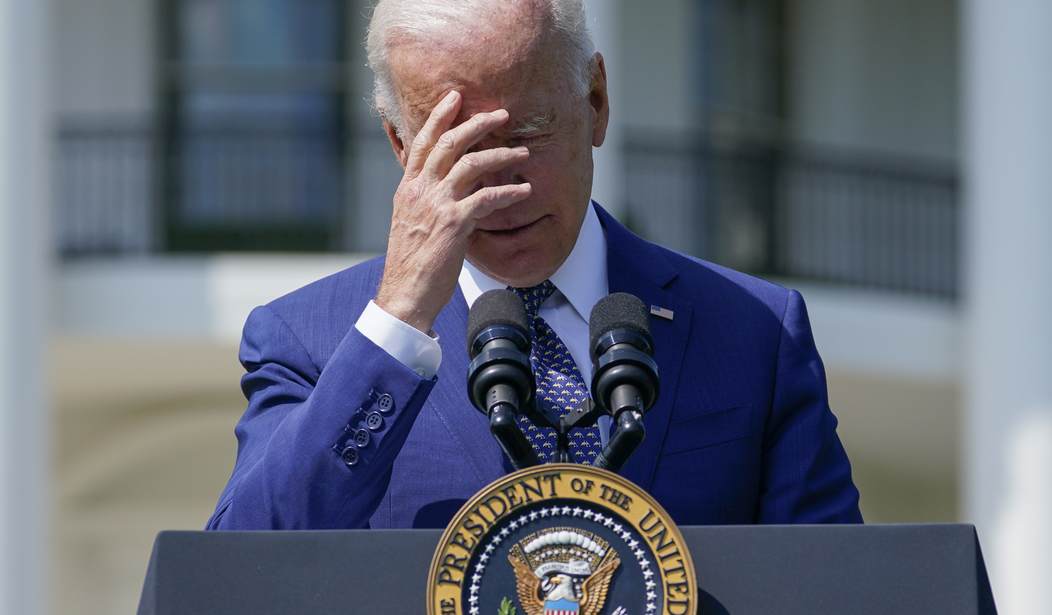During his 1981 Inaugural Address President Ronald Reagan warned, “Government is not the solution to our problem, government is the problem."
His warning rings true today.
Seven months into power, the Biden administration is unapologetic about their disdain for the rule of law, institutional norms, and respecting freedom and individualism.
The exorbitant amount of executive orders issued is problematic. The nation is experiencing inflation unseen since the Jimmy Carter years. Then we have atrocious spending bills and ineffective mask mandates, compounded by the problem of the government propping up industries and unelected agencies infringing on property rights.
Where does this assault end? And what can be done to stem the tide? The answer is decentralization.
Recommended
The Power of Decentralization
In the battle playing out between centralization versus decentralization, it’s important to strive for the latter.
Last year, we witnessed the greatest transfer of power from small businesses and individuals to the federal government and their Big Business cronies.
Carol Roth described this in her book, The War on Small Business, as central planners wanting to “concentrate power and seek to destroy anything that stands in their way.”
Roth argues in order for centralization to be challenged, individuals must push back. She argued, “Individuals have stood firm on decentralizing power and addressing the concerns that they cannot trust centralized local and national institutions with their protection—and that they may need protections from those powers as well.”
Decentralization works by repudiating central banking and Wall Street for cryptocurrencies, rejecting traditional jobs for flexible work, and funding students instead of systems.
Digital Currencies
While personally ambivalent to digital currencies, I’m compelled to defend them because central planners hate them.
This battle is playing out in the U.S. Senate right now over infrastructure talks. Senator Rob Portman (R-OH), Senator Mark Warner (D-VA), and the Biden White House, for instance, are supporting an amendment that’ll mandate government pick winners and losers concerning digital assets.
Alternatively, the Wyden-Lummis-Toomey Amendment would protect them from further government interference.
Senator Cynthia Lummis (R-WY), one of the chief amendment backers, wrote in The Hill the amendment “clarifies in law what most of us already believe — that validators of distributed ledger data, like miners for example, or hardware wallet providers and software developers, should not be required to report transaction data to the Internal Revenue Service.”
She added, “The most important thing our amendment does is to say in plain English what the law means. This is so important to start-ups, small business owners and ordinary Americans who want to take a risk on their idea. In many cases, these Americans can’t hire a fancy tax lawyer to tell them what a complicated law means.”
Freelancing
In wake of AFL-CIO President Richard Trumka’s death, Congressional Democrats are renewing calls to pass the Protecting the Right to Organize (PRO) Act—the pro-labor union, anti-worker bill.
If passed, this bill would repeal right-to-work laws, forcibly misclassify millions of independent contractors as employees, make union membership conditional for employment, and mandate employees surrender personal employee information to union organizers without their knowledge, among the many Big Labor carve-outs featured in the bill.
Our workforce is embracing decentralization while rejecting unionization. 9-to-5 jobs are less common. (That’s a good thing.) Union jobs only account for 10.8 percent of the workforce, compared to the 36 percent of the workforce, or 59 million workers, who partake in the freelance economy.
It’s 2021, not the 1930s. Workers aren’t exploited or misclassified en masse. They enjoy greater flexibility in their careers and now decide what’s best for them. Many flexible workers boast multiple clients, greater earnings, and are more successful—and happier—on their own.
Simply put, the PRO Act would give Big Labor and their elected Democratic friends greater control over our political system. That’s scary.
School Choice
The coronavirus pandemic has renewed interest in school choice.
Why?
Powerful, entrenched teachers unions— largely an extension of the Democratic Party—displayed how power hungry they are and what little regard they actually hold for students.
That has led Americans to advocate for decentralization in public schools. And public opinion appears to reflect this too.
According to an April 2021 Real Clear Opinion Research poll, 71 percent of voters—including Democrats and Republicans—now overwhelmingly support school choice.
The “fund students, not systems” movement has been advocated by Corey DeAngelis, national director of research at the American Federation for Children. He explained:
This realization that we should be funding students instead of closed buildings is also leading to real action in a majority of state legislatures across the country.
Legislators in 27 states have introduced bills to enact or expand programs that would fund K-12 students as opposed to institutions. As of this writing, seven of these states—Iowa, Arizona, Missouri, Indiana, Kansas, South Dakota, and West Virginia—have already passed school choice legislation out of a chamber, and five others—Florida, Georgia, Montana, Idaho, and Oklahoma—have passed bills out of at least one committee.
Conclusion
Decentralization is pro-freedom, pro-family, pro-individual, and pro-American. And it will be our saving grace against big government policies emanating from Washington, D.C. going forward.
Conservatives and Republicans must adopt this policy into their agenda to culturally and electorally succeed. If they don’t, they risk being relegated to minority status.























